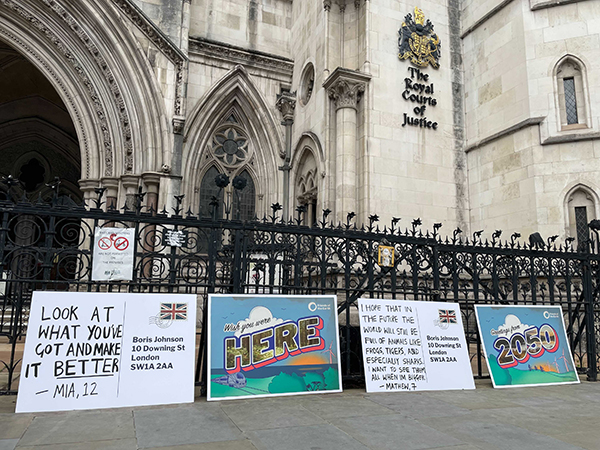Growing number of framework litigation cases filed against governments around the world

London, UK 80 framework litigation cases have been filed against national governments (56 cases) and subnational governments (24 cases) since 2005, according to a report published today (7 September 2022) by the Grantham Research Institute on Climate Change and the Environment at the London School of Economics and Political Science.
Government framework cases differ from other climate cases as they focus on the ambition or implementation of whole-of-government responses to climate change. As such, government framework litigation impacts “how fast low-carbon transition occurs in different jurisdictions, increasing the pace and scale of climate action”.
The report, Challenging government responses to climate change through framework litigation, by Catherine Higham, Joana Setzer and Emily Bradeen, shows the largest amount of government framework cases have been filed in or against Global North countries (63 cases), while a small but significant minority have been filed in or against Global South countries in Latin America (8 cases) and South Asia (7 cases). Cases have been filed before national courts in 24 countries.
The authors analysed records from 2005 onwards and found that since 2017 numbers have been rising steadily, with a record number of 30 new cases submitted in 2021. The authors identified that just under half of the cases were filed in Germany.
The authors also outline the impact of government litigation, and its ability to “significantly impact on government decision-making, requiring governments to develop and implement more ambitious policy responses to climate change”.
The authors also stress that government litigation is not a panacea and highlight its limitations: “potential climate litigants, including civil society organisations and funders, should think carefully about when and how to bring framework cases, particularly in light of the challenges of enforcing rulings. Framework cases must be accompanied by ongoing and extensive strategies for engagement if they are to play an ongoing role in achieving policy outcomes.”
They also expect “these cases to matter for corporates and investors as they can prompt concrete governmental policy responses. Litigation against governments may act as a spur to accelerate the transition in their respective countries, with all the knock-on impacts that may have. Such litigation may also plant the seeds for cases against corporate actors.”
For further information about the study, or a copy of Challenging government responses to climate change through framework litigation, please contact Liam Collins on l.collins4@lse.ac.uk or +44 (0) 7813 554789. The report is also available here.
Notes to Editors
The Grantham Research Institute on Climate Change and the Environment was established in 2008 at the London School of Economics and Political Science. The Institute brings together international expertise on economics, as well as finance, geography, the environment, international development and political economy to establish a world-leading centre for policy- relevant research, teaching and training in climate change and the environment. It has an active body of work on sustainable finance, including carbon assessment, central banks, the just transition, resilience and sovereign bonds. It is funded by the Grantham Foundation for the Protection of the Environment, which also funds the Grantham Institute – Climate Change and Environment at Imperial College London. www.lse.ac.uk/grantham/

